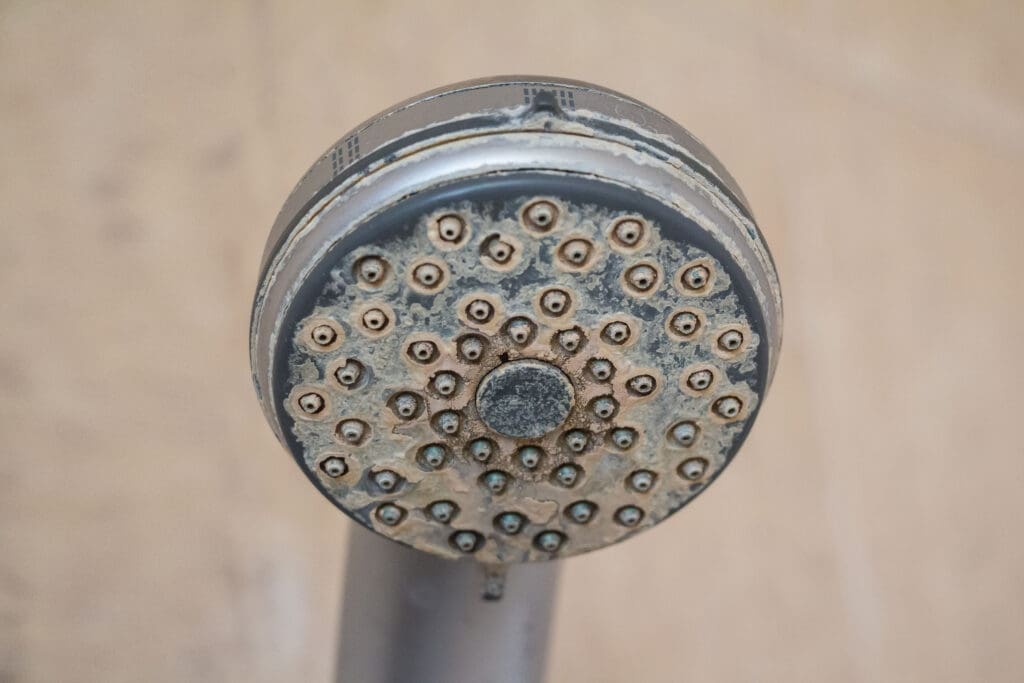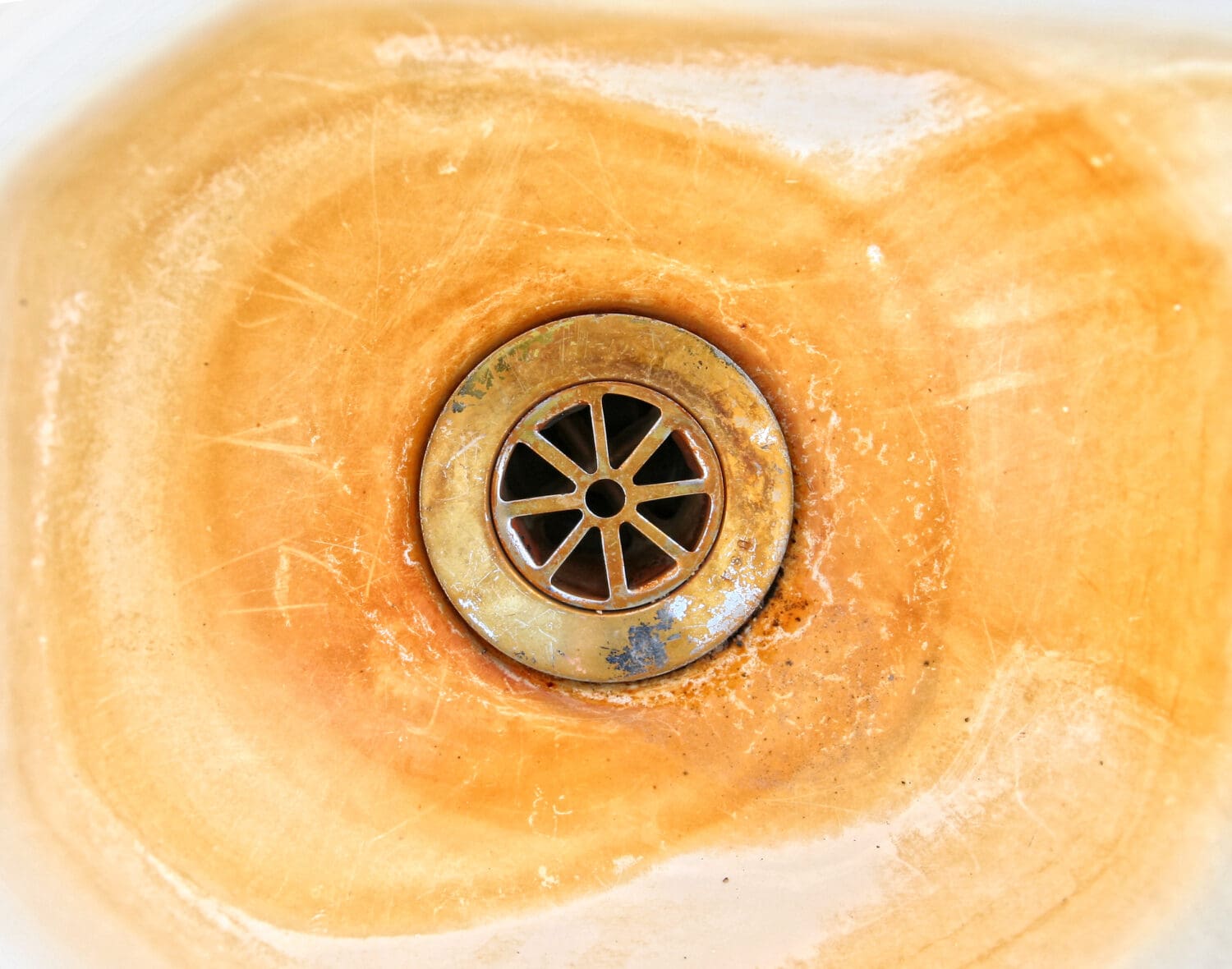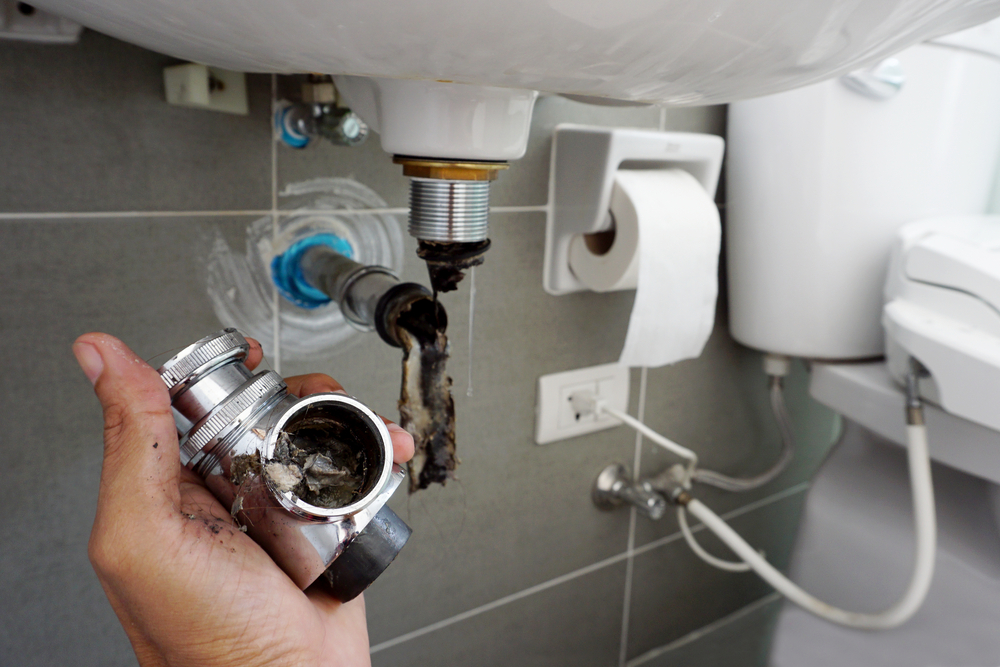HARD WATER
Hard water accumulation is not just a visual nuisance, it can also lead to permanent damage to appliances and fixtures. Signs of hard water include:
Ready to get started? Contact us today for your free water test!

CHLORINE, FLUORIDE, & FOREVER CHEMICALS (PFAS, PFOS)
Chorine, fluoride, and forever chemicals such as PFAS & PFOS are persistent in our environment. These elements may part of your municipal water supply and are linked to serious health risks.
Ready to get started? Contact us today for your free water test!
IRON & MANGANESE STAINS
Iron and manganese stains not only impact your home’s appearance but also affect the quality of your water. Signs of iron and manganese include:
Ready to get started? Contact us today for your free water test!


ROTTEN EGG SMELL
Hydrogen sulfide (sulfur gas) creates an unmistakable rotten egg smell and taste in your water. This nuisance is especially common in well water systems.
Ready to get started? Contact us today for your free water test!
SEDIMENT
Sediment appears as tiny black or grey specks in your water. Signs of sediment build-up include:
Ready to get started? Contact us today for your free water test!


BACTERIA
Water quality varies significantly by location, with different regions facing unique bacterial contamination challenges in tap and well water systems.
Ready to get started? Contact us today for your free water test!
Chlorine Taste and Odor
City/municipal water often contains chlorine, which is effective for disinfection but can result in unpleasant tastes and odors once the water reaches your property. While this chemical is safe in small amounts, its byproducts can lead to health concerns.
Chlorine can be absorbed through the skin, but inhaling chlorine gas during a hot shower poses a more significant risk. The vapor may contain harmful substances, including Trihalomethanes, which have been linked to skin and eye irritations and, in some studies, cancer.
Iron and Manganese
Iron and manganese present their own set of challenges, showing up as yellow or reddish-brown stains on toilets, sinks, and bathtubs. These minerals can also tarnish your laundry, leaving whites dull and yellowed.
While iron and manganese are not harmful in low concentrations, elevated levels can contaminate the water supply and potentially affect the nervous system. Prolonged exposure, particularly in young kids, can hinder proper child development.
Rotten Egg Smell
Hydrogen sulfide, often referred to as sulfur gas, imparts a rotten egg odor to your water. While this gas is not generally a health threat, it is technically flammable and can cause discomfort at high concentrations. Property owners relying on well water are more likely to encounter this issue, and while it may not pose immediate health risks, the smell can be off-putting and unclean.
Acidic Water
Water with a pH lower than 6.5 is classified as acidic, leading to blue-green stains in various locations, including sinks and drains. This acidity can damage plumbing, resulting in a metallic taste and potential health issues related to excessive iron consumption.
Additionally, acidic water can cause pinhole leaks in copper pipes, leading to water loss and further damage. Addressing the pH levels is crucial to prevent these issues from escalating.
Sediments
Sediment often manifests as little specks or grit that clog faucet heads, restricting water flow. You may notice small grey or black particles when running a bath, which can also disrupt washing machines and prolong cycle times.
Connect with Us for Solutions to These Common Water Problems
If you’re experiencing these common water problems in Northern Virginia, Harvie Water Solutions can help. Contact us today.


